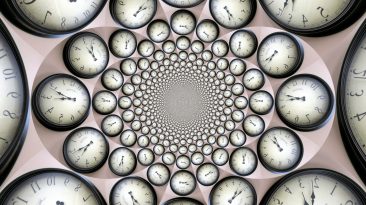Today, people with Down syndrome are generally treated with love and respect from those around them. And despite having an intellectual disability, people with Down syndrome have many successes to be proud of!
Here’s a Spanish city councilor, a fashion designer, a pro swimmer, an actor, and an entrepreneur and philanthropist. Historically, however, we haven’t been very supportive of people with Down syndrome. But would it be a different story if they were in charge?
On average, 1 in every 1,000 babies around the world is born with Down syndrome. Down syndrome is considered to be a genetic disorder that occurs when abnormal cell division creates an additional full or partial copy of chromosome 21.
People with Down syndrome might look different, and they generally have lower IQs than people who don’t have Down syndrome, but that doesn’t stop them from being valuable members of society! Unfortunately, it took us a while to realize that.
Until sometime in the 1950s, people with Down syndrome in the U.S. used to be kept in prison-like state institutions. Sometimes seen as less than human, people with Down syndrome were often separated from the rest of society.
But how would our behavior change if people with Down syndrome ruled the world? Would they treat us poorly for being different from them?
Would government and infrastructure be as efficient as it is today? How drastically would our society change? And would it be for the better?
The first thing you could look forward to is a much more organized and scheduled world. People with Down syndrome are said to be punctual and headstrong.
They tend to like routines and have a keen attention to detail. In a Down syndrome society, these traits would show in a number of ways.
For example, your 9 to 5, would actually be a 9 to 5. No more meetings gone too long, no more sudden, last-minute deadlines. And if you have plans to meet friends for drinks after work, they’ll actually be on time.
With some extra effort, we might even curb the number of delayed planes, trains, and other modes of shipping and transport. But a more efficient world doesn’t have to mean a busier one, or a more stressful one.
While people with Down syndrome take their work and responsibilities seriously, they’re also very self-aware, affectionate, and caring. Anyone from your boss to your head of state would encourage you to take care of yourself, relax, and live in the moment.
You might also expect a rise in arts funding and cultural activities, since a common way for people with Down syndrome to get comfortable is by being creative, whether that’s writing, drawing, solving puzzles, or making crafts.
And if that’s not exciting enough for you, people with Down syndrome love to party! Being surrounded by fun, social people who don’t mind a good dose of hugs, is just the kind of environment that makes them happy! So if dressing up and dancing are your cup of tea, this could be the world for you.
Just so you know, hugging wouldn’t be limited to the dance floor. In fact, a hug might even replace the handshake in this friendlier and more open society!
People with Down syndrome know they’re different from a lot of other people, which is why they tend to be less judgemental and more empathetic. They also tend to be very honest and direct, which can rub some people the wrong way, but showing a bit more transparency and compassion towards one another would probably be a refreshing change from today’s norms.
Another benefit would be cleaner living! Streets, buildings, city parks, and hopefully the planet as a whole would be a lot cleaner. People with Down syndrome are known to exhibit some obsessive compulsive tendencies, which can be challenging at times, but on the plus side, their emphasis on tidyness might make us re-think how we treat our environment.
But are all these changes beginning to overwhelm you? Changing the world isn’t easy for anybody! But interestingly, research shows that children and young adults with Down syndrome have significantly higher adaptive skills than you might exact from their lower IQ test scores.
So if you’re struggling with change, don’t be afraid to ask for help, from anybody. Sound advice can go a long way. And so can a really good hug!
Medical scientists continue to study Down syndrome in hopes of helping those who have it. If they can, who knows what could happen?
Subscribe to What-If on Youtube or follow the show on Facebook Watch.
Sources
- “Default – Stanford Children’s Health”. 2019. stanfordchildrens.org. Accessed August 15 2019.
- “World Down Syndrome Day, 21 March”. 2019. un.org. Accessed August 15 2019.
- “Facts About Down Syndrome | CDC”. 2018. Centers For Disease Control And Prevention. Accessed August 15 2019.
- “Chromosomes Fact Sheet”. 2019. genome.gov. Accessed August 15 2019.
- “Down Syndrome – Symptoms And Causes”. 2019. Mayo Clinic. Accessed August 15 2019.
- ” National Association For Down Syndrome | If People With Down Syndrome Ruled The World “. 2015. Dennis McGuire, nads.org. Accessed August 15 2019.
- “Neuropsychological components of intellectual disability: the contributions of immediate, working, and associative memory2019”. mddlab.arizona.edu. Accessed August 15 2019.
- “Spain’s Down Syndrome Councillor Makes History”. Mills, George, 2013. thelocal.es. Accessed August 15 2019.



























